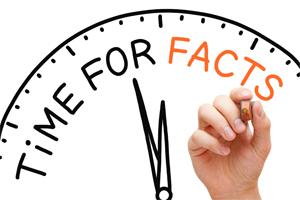ADHD awareness often includes debunking some of the myths that surround the disorder and its treatment. We address a few of the common misunderstandings.
Bust some myths at bit.ly/nrctopplingmyths

ADHD awareness often includes debunking some of the myths that surround the disorder and its treatment. We address a few of the common misunderstandings.
Bust some myths at bit.ly/nrctopplingmyths
Am a physician practicing in Michigan. Currently, running an ADHD clinic. I love what is in that paper. The article summarizes the dilemma of the parent of a child diagnosed with ADHD.
I see several new pediatric patients a week. I spend a lot of time to give their parents a very similar message. Emphasizing the importance of the medication as an integral part of the management of the disorder.
I prefer to call ADHD a developmental disease( not by definition). Just like any other chronic diseases that are potentially not curable. Just like Diabetes, if you don’t treat it you run into complications affecting the heart, kidneys, eyes, etc. In ADHD patients, the hyperactivity diminishes but distractibility, impulsively and inattentiveness continue. However, the complications of not treating the disorder in childhood or adulthood are not only anxiety and depression. A significant percentage of patients become a chronic smokers, alcoholic or drug abuser. Also, adults with ADHD suffer from academic underachievement, problems at work and at home.
At home, ADHD symptoms cause a tremendous strain to their own family or their marital life or in any other relationships.
Unfortunately, children with ADHD are suffering at school and at home At home, some parents uses more discipline, thus, adding more stress to the child’s anxiety and sadness. Therefore I strongly advice parents to be very educated about ADHD from reliable and well researched medical sites, like aap.org, abp.com, CHADD.org, etc.
Thank you Karen.